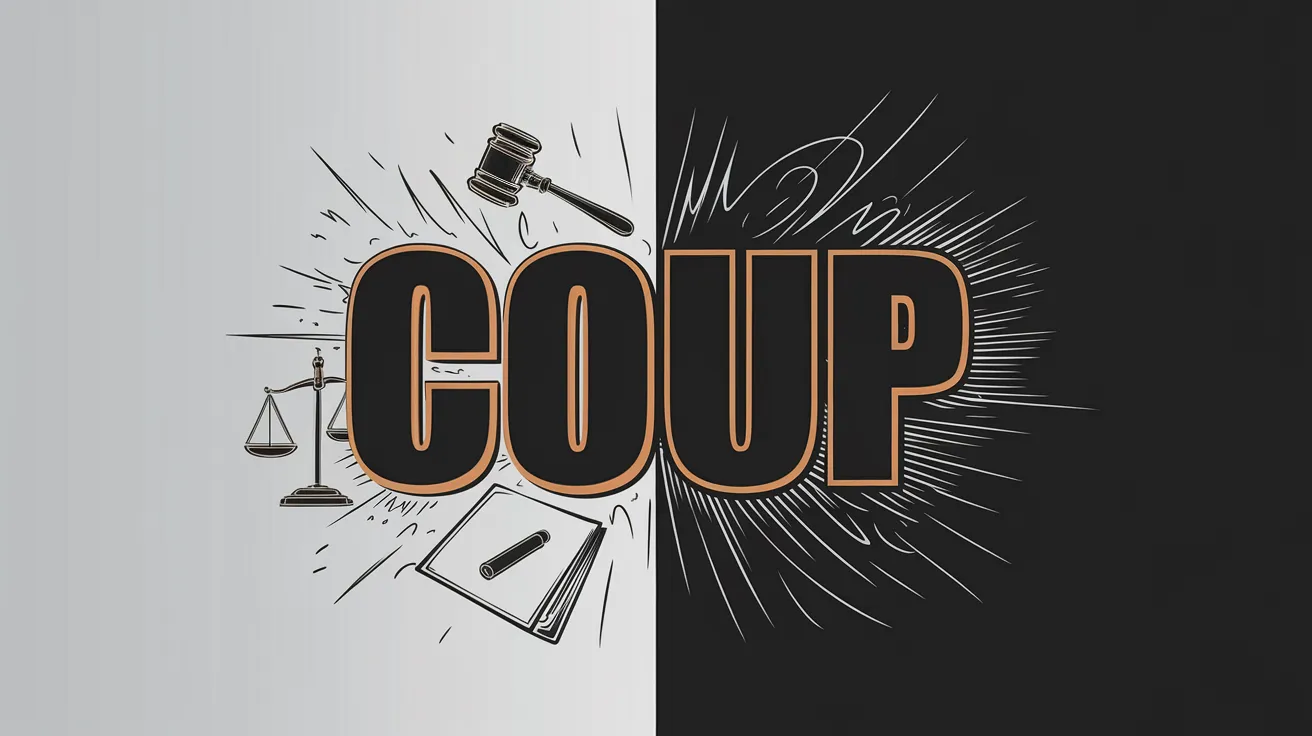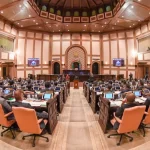Malé, Maldives — The word “coup” has long been a powerful and malleable tool in the lexicon of Maldivian politics, shaped and reshaped by those in power to suit their narrative. Historically, when kings governed under divine sanction, coups were typically internal affairs, carried out within the palace or ruling clans. With the transition to a republic, the concept of a coup evolved, becoming more closely associated with public uprisings rather than military-led overthrows, unlike the scenarios in countries such as Sudan or Bangladesh.
Throughout the republic’s history, accusations of coups have surfaced at pivotal moments. During President Maumoon Abdul Gayoom’s lengthy rule, there were occasional murmurs of military dissatisfaction and possible overthrows. His successor, President Mohamed Nasheed, continues to assert that his government was toppled in a coup—a claim that remains a point of contention. Similarly, President Abdulla Yameen, known for his crackdowns on political opposition, frequently wielded the term “coup” to label threats against his administration, ranging from the so-called “Adeeb Finifenmaa coup” to what he termed a “judicial coup.” For Yameen, the word became a strategic shield to counter political dissent.
Under the current administration of President Dr. Mohamed Muizzu, the term “coup” has re-emerged with renewed intensity. Muizzu has characterized recent actions by the Bank of Maldives as a coup, a sentiment echoed by his administration’s social media warriors and ministers. The narrative has gained traction on social media, often amplified by “bot accounts”, as highlighted in a Maldives Police Service press release last night. The police have also underscored the severity of the situation, framing it as a substantial threat to national stability.
In the Maldives, where political dialogue is often laden with tension, “coup” serves as both a psychological weapon and a versatile tool for the executive to navigate crises. The accusations against the opposition and Bank of Maldives have escalated to the point where the Maldives Police Service has launched an investigation.
Prominent lawyer Mahfooz Saeed has penned a detailed analysis on the matter, published on Adhahdu.mv. Saeed points out that the term “coup” appears in three key pieces of legislation: the Army Act, the Police Act, and the Penal Code. Both the Army Act and the Police Act define a coup as actions involving disobedience by employees of these institutions to their respective leaders’ orders. Section 610 of the Penal Code specifically addresses coup d’état, identifying it as the act of overthrowing a legitimate government. The law stipulates: “Whoever encourages the overthrow of the government by riot or the use of force, whoever assists in it, whoever commits it, commits a crime.” It further outlines offenses related to sedition, including encouraging and participating in rebellion.
Saeed’s analysis delves into the legal rationale behind these coup laws. He explains that inciting a coup involves instructing or encouraging five or more individuals to overthrow the government by force, classified as a second-degree felony with a basic punishment of six years in prison. Under aggravating circumstances, this penalty can extend up to 15 years. Participating in a coup—actively engaging in the forceful overthrow of the government—is considered a fourth-degree felony, carrying a basic sentence of one year, seven months, and six days, which can increase to a maximum of four years under specific conditions.
Based on his examination of the police press release, Saeed notes three primary reasons cited for the charge of attempting to illegally overthrow the government: a press conference held by politicians on the government’s financial situation coinciding with a government-majority-owned bank’s decision against the government’s advice, the activation of numerous ‘bot accounts’ on social media urging public disorder, and a belief that these actions aimed to destabilize the government. Saeed argues that the crux of the police’s argument hinges on the term “consideration.” He asserts that initiating a criminal investigation on mere consideration does not meet the threshold of “sufficient primary evidence” required for such an action. He emphasizes that such proceedings must be grounded in reasonable evidence, not mere perceptions.
The legal framework around the term “coup” is rooted in specific definitions outlined in the Penal Code, which are crucial for interpreting allegations of attempts to overthrow the government. Saeed’s commentary includes insights into these definitions, noting that Paul H. Robinson, a legal expert, provided technical assistance in drafting the Penal Code. Robinson’s input and subsequent commentary define a coup as the “violent use of force” to overthrow the government, drawing parallels with riot-like behavior and attempts to achieve revolutionary outcomes through violence. While the Bank of Maldives’ actions might be seen as financial misconduct, they do not meet the legal criteria for a “financial coup.”
Saeed also clarifies that both Robinson’s draft and the existing Penal Code explicitly exclude peaceful assembly from being classified under coup provisions. Aiming to change or overthrow the government does not constitute a crime unless it involves the use of violence.












